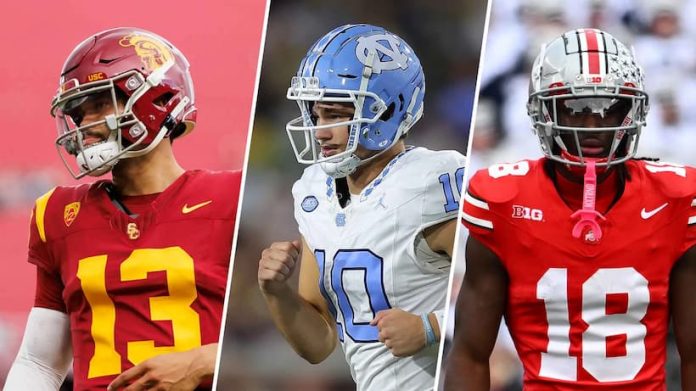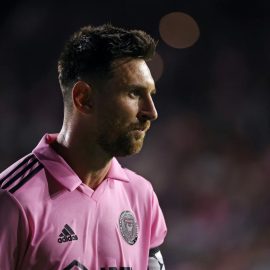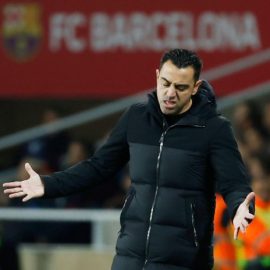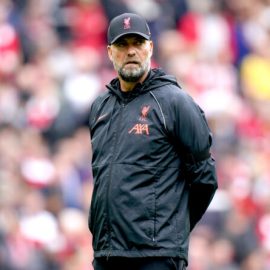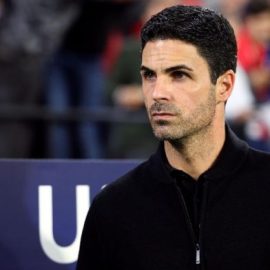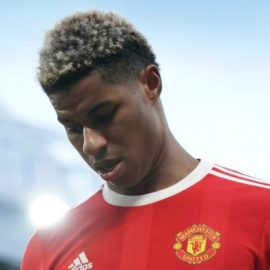I resolved to interview the hot new Salvadorian player Marco — he cost a lot of money, and the other reporters didn’t speak Spanish, but I could finesse it sketchy. I put together some questions, cleared PR, and after practice stood alone with him on the windy soccer field.
I apologized for my Spanish, he apologized for his English (none) and that out of the way we smiled and chatted. Soft-spoken and used to a press of reporters, he chatted intimately about his abrupt arrival in the U.S., the financial inequity in his country, his respect for the coach, the friendship of his new teammates, his desire to help them to the championship, his trust in God.
He’d never been in the United States before, his eyes sparkled, everything was new and promising to him. I understood perfectly and couldn’t help but smile and so did he, especially when I gestured with my hands when asking about his childhood.
I proudly emailed my cynical (they all are) editor and he naively commended my bilingual abilities and told me to write the interview in both English and Spanish. So I opened a new document on my laptop, gave it a title, and played back the tape. But the wind that had whipped the hair around my face tore through the audio like a hurricane, muffling the rise and fall of my player’s gentle, rapid voice. His words ran together, idioms dropped like magnetic words falling off a refrigerator, verb tenses and slang collided in meaningless jargon. I spent three hours deciphering individual words, but the sentences made no sense in either language. And I was so confident we had a great conversation, connected, had a real understanding. My interpretation was nothing more than a gut feeling.
The next day I asked Frederico, a friendly Guatemalan laborer at my job for translation help. He used to play soccer, he’d be interested. He asked for directions to my house — he’d meet me there, he whispered.
“No, let’s meet at Domino’s, your wife can join us.”
I perched on a ripped plastic seat in the grimy, humid pizza joint until he rushed in, sat close, squeezed his arm around me, and I lifted my elbow when I opened the laptop.
With coaxing, he translated my player’s first two statements fairly, but choked on the third, a discussion of the disparity between U.S. and Salvadorian salaries.
“Why did you ask him about money?” he scowled. “Of course he came here to make money, why make a big deal out of it?”
“It’s just background.”
“You don’t know how bad it is there, how hard you have to work, how little you get.”
“Most people find money pretty interesting.”
“It’s nobody’s business,” he barked, rubbing his short, course fingers over his cheeks. “I work six days a week from five in the morning. I know how he feels.”
“Well, I work two jobs, and I don’t make money either.”
“But you write about soccer, anyone can do that.”
“It’s complicated,” I defended, thinking about the snotty PR office, the weekend games, the rainy practices, the cost of gas, the hundreds of emails, the cranky editor, the statistics, writing till two AM, setting the alarm for the day job, sweaty players looking hopefully in my eyes, relationships with reporters, photographers.
“Soccer is a complicated game,” he said, sketching positions on a napkin. “I’ll explain it to you.”
“I coach U-16 boys.”
He looked at me narrowly and curled his lips into a sneer. “It’s a man’s sport, you can’t understand. Stick to asking questions.”
My gratitude wore thin. I hit play, cutting off Frederico’s harsh voice with Marco’s flowing, gentle one. “What exactly does he say here?”
“He says he’s happy.”
“He said a hell of a lot more than that.”
“That’s what he meant. Write it down.” He jabbed his finger at my keyboard.
“You look tired,” I snapped. “Go home and we’ll finish tomorrow.”
“No, I’m done, I thought you wanted something else.”
This encounter was a failure on many levels. The next day, he made raspy, obscene whistling noises at me in front of other laborers and drove his truck alongside me on the street, leering out the open window.
I asked another Hispanic worker for help, and he sat near my desk like a schoolboy being tested, his brow beaded with sweat. His translation was meticulous, but contradictory.
“I’m stupid,” he breathed, “I dropped out of school.”
“It’s different than what I had, but maybe you’re right and I’m wrong.”
“Everyone speaks different in Central American countries. I’m from Bolivia. I need a drink of water,” he whispered, gulping down the Poland Springs I handed him. “I’m a landscaper, what do I know about soccer stars? I was never good at soccer. “
“Well, he’s not good at English and I’m not good at Spanish.”
“I’ve only been here two years. Sit with us at the picnic table for lunch tomorrow. The guys are from all over and a lot smarter than me.”
I emailed my editor for time and he shot back that I was past deadline and threw in a little bad language for effect. I got back to him on a slightly higher tone.
The next day I carried my laptop to the table where the dirty men ate stinking hot beefy leftovers cooked and packed in Tupperware by their wives. They wiped their mouths on their sleeves and blatantly stared at my T-shirt. They argued about soccer, they bragged about soccer, they listened to the tape and disagreed about the meaning of everything Marco said, and were amazed by the sound of the wind chasing away his words. They asked me if I had a husband, a boyfriend, why not, and I closed the laptop and left.
That night I called my housecleaner Miranda, who said her mother never let her speak Spanish, wanted her to forget, but she had a friend Gloria from Costa Rica who spoke perfect Spanish, and I should ask a woman because men are nothing but trouble. Gloria said she’d love to help, and I took her out for lunch, spending as much as I was getting paid for the piece. I was in too deep, overinvested for a small piece of work. The balance sheet was skewed. When do you cut loss? But I wanted the feeling, the connection back.
Gloria brought her sixteen year-old daughter and her daughter’s two babies, angelic but already out of control by ages one and two. The daughter wandered off to flirt with waiters smoking cigarettes on a break and Gloria spent the lunch chasing the toddler who annoyed other diners by pulling at their tablecloths. With the baby in her lap and her eye on the toddler, Gloria instructed me to replay the tape over and over while holding it up to her cell connected to another friend from Honduras. I had asked Marcos what he “brought to the team” – Gloria interpreted that he played a little guitar native to El Salvador.
I doubted that’s what he said.
“Oh no, a little type of guitar, it looks like this and you strum it, and he’s very proud and says this is what’s special about him.”
“I think he’s talking about corner kicks.”
“No, no, he likes to play his instrument.”
After a few more bizarre interpretations, Gloria admitted his slang was tricky. “You can tell he’s from the country, everything’s different there. But my mother is from the Dominican Republic and it’s a closer language to Honduran, so she’ll translate perfectly.”
Why not? How many meanings could be twisted from this conversation? Recurring failures with balance sheets taunted me.
Gloria said she’d meet me at 10PM in the parking lot of the Dollar Store in a bad part of the city. Miranda drove with me there, and we waited in the empty parking lot watching giant raccoons diving into a dumpster. Eventually the cell rang and Gloria asked us to pick her up at her Narcotics Anonymous meeting at the Salvation Army downtown.
While Miranda searched through the milling throngs of the hopeless on the sidewalk, I sat in my idling car wondering if my career could tank any further than this, or if this even was a career. I could say I lost the recording, make up the English, make it so boring no one would read it or care. But next week in the locker room, Marco would look at me and I’d have broken something. The hopeless shuffled by my car, leaned on it to light cigarettes, only a thin sheet of glass between us.
Miranda beat on the window, and the faces of Gloria and her fourteen year-old niece, too young to be a crack head, pressed against the glass.
“It was a good meeting,” said the niece, scooching across the seat and playing with a stuffed animal key chain.
“James isn’t supposed to be at my mother’s, he’s messed up, but don’t worry about him,” assured Gloria, “we’re going to kick him out. He’s a guest of the state and he don’t want no trouble. And Leroy’s coming just to make sure.”
Who was James, Leroy? “Where to?” I shrugged.
“The projects,” she answered, searching my face in the rear view mirror, skepticism in hers.
They went on forever, dirt paths winding between them, teenagers waiting dangerously on every slab doorstep on the hot, empty summer night. We parked in a lot staked out by wide-eyed boys in hoodies, and laced around the paths like deer on a worn meadow path until we passed through a heavily locked metal door with no step and into a tidy beige living room — more orderly than mine. Teenagers disappeared behind closed doors packed with beds and Ruby, a tiny old woman in a soft old bathrobe, stumbled down the stairs and settled herself in a worn arm-chair kitty-corner to me.
She was thin, her hair iron gray, and the matriarch of this wasteland began to explain the evening games in the field next to her home in the Dominican Republic sixty years ago. Her father played soccer, she grew up listening to it on the crackling radio, watching it in stubbly fields until the sun fell into darkness and the women with the tight, flower print dresses came out with the beer. They were always going to make it to the finals that year, they were always getting the best player from another team, it was always a scandal, and they always talked softly, hopefully. Her father lived for Saturday, and every day after dinner the team met in their backyard, they shot the ball between trash cans, showed off their tricks, talked about training, an old coach from the national team would help them because he knew how good they were. They drank beer, they talked bad about other teams, women.
Ruby laughed when the tape began to play.
“Shut up,” she said to Miranda and Gloria, who were complaining how tired they were. It was midnight.
Leroy, glowing skin and pumped, too fit to be employed, slipped in through the metal door for a basketball. Leroy was still one way or the other, twenty for a split-second. Everyone seemed to know why I was here, what I wanted, who I was. I felt lost, like James. James was wired, electric, dangerous — they had a child somewhere – Gloria made him leave.
“Someone’s looking for you,” she threatened, like a viper sinking teeth into the soft, punctured flesh of his arm. The metal door closed quietly.
I talked with Ruby till two AM while Gloria and Miranda fell asleep on the couch and unforeseen sleepy children in jeans were dragged from bedrooms to the homes of various parents and guardians. The deer paths were busy.
Ruby’s translation was perfect, so clear and physical. All of a sudden I remembered the conversation. It spilled from my fingers onto the keyboard until it was done.
Ruby brought me some grape juice and we watched the sleeping women and laughed at them.
“Anytime at all,” she said, “I don’t want to forget.”
Silently, Gloria led Miranda and me through the dark, quiet paths.
The next day I returned to bring Ruby a potted rose bush, but she was out and I left it with some boys playing by the door. As I was winding my way out, some men shouted at each other and suddenly a charged, angry, hooded teenager was striding backwards fast in front of me, spewing threats forward at an enemy shrouded in a doorway, smirking silently, hand stuffed in his big gray sweatshirt. Where could I hide?
Then it was over, and I didn’t have to hide.
I called that night to thank Ruby, but she hadn’t gotten the rose bush.
“My neighbor got a beautiful rose plant today,” she said hopefully. “It has the prettiest pink flowers.”
Some things don’t translate easily.
The above article is a fictional account written by L.E. Eisenmenger.
This article is a submission for the Soccerlens 2008 Writing Competition; to participate, please read the details here. The competition is sponsored by Subside Sports (premier online store for football shirts) and Icons (official signed football jerseys).
Add Sportslens to your Google News Feed!
